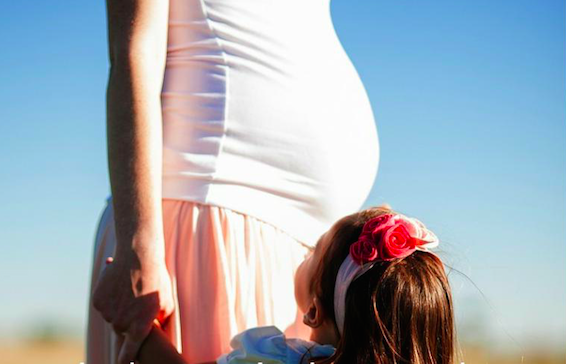
Breastfeeding during pregnancy
When a breastfeeding mother becomes pregnant, she may find herself with mixed feelings and questions about whether or not to continue breastfeeding her older child. She may even hear negative comments about continuing to breastfeed during pregnancy, which may come from family and friends as well as healthcare professionals.
There are many fears and misconceptions associated with breastfeeding during pregnancy: a perceived increased risk of miscarriage, that the babies or the mother will suffer from nutritional deficiencies, that the older sibling will not leave enough colostrum or breast milk for the newborn, that this breast milk is “bad” for the older sibling and will harm them and so on…
Let’s debunk these myths: what happens to the mammary gland during pregnancy?
During the first weeks of pregnancy, when the mother is often not yet aware that she is pregnant, the sensitivity of her nipples increases because of the hormonal changes that are happening. After 10 weeks of pregnancy, she may begin to notice a decrease in breast milk supply.
Depending on the age, the older sibling may express, either with words or with nervousness when breastfeeding, the drop in milk supply. At this point, some mothers wonder if they can do something to continue having breast milk, but there is nothing they can do because the mammary gland has begun to regress, which means it is preparing for breastfeeding the future newborn.
Over 60% of children wean themselves during another pregnancy, while just over 40% continue breastfeeding, even without there being any milk supply.
When breastfeeding during pregnancy, how can a mother feel?
- There is increased sensitivity of the nipples, and the mother may experience pain. However, this discomfort usually decreases during the third trimester.
- Having mixed feelings about the older child is common and may increase as the pregnancy advances.
- Occasionally, colostrum appears as small crusts on the nipple, which are released when washing the breast.
- Children sometimes say that the breast milk has gone bad or tastes bad now. Colostrum is saltier than breast milk and not as sweet or tasty. If the older sibling drinks colostrum, they may have heavier and more liquid stools because of its laxative effect.
Is there any risk for the mother, the child, or the unborn baby?
Continuing with breastfeeding the older sibling during a new pregnancy is a process that is surrounded by myths and misconceptions, all of which are very negative and reflect our society’s lack of knowledge about breastfeeding.
Some people claim that breastfeeding during pregnancy could be dangerous for the mother, the older sibling, and the developing unborn baby. In addition, all kinds of reasons are often given: that this can cause contractions, that it increases the incidence of miscarriage, that it can affect the growth of the unborn baby in the womb or determine its future sexuality, that it can cause premature birth, that it is an excessive metabolic drain on the mother, that the milk she produces is bad, that it can harm the older sibling or make them sick, and so on.
None of this is true.
If your pregnancy is going well, you can continue breastfeeding for as long as you want. Remember that during the first months, you may experience nipple discomfort and feelings of rejection towards your older child. Also, keep in mind that your milk production will decrease, so if your baby is less than one year old, you always have to supplement your baby’s diet with commercial formula milk.
It is only advisable to stop breastfeeding during pregnancy if your doctor also forbids you to have sexual relations, if you have an irritable uterus, or if you are suffering from any other circumstances that involve a risk of miscarriage. In these cases, the situation needs to be carefully assessed.
How to get through the first days of tandem breastfeeding
- After giving birth, the coming in of mature breast milk (milk coming in), usually happens quicker when tandem breastfeeding, and sometimes within a few hours, colostrum production stops and breast milk supply starts.
- There is no reason to limit access to the breast for the older sibling after the birth of the newborn; there is colostrum for both of them. If you are worried that the little one will run out of colostrum, you can offer the breast side that produces more to the newborn and the one that produces less to the older sibling.
- The same applies when mature breast milk comes in. There is breast milk for everyone, and newborns almost always gain weight faster than their siblings when they were the same age.
You will see that your mammary gland always prepares and gives priority to the newborn. And for your older child, going back to having colostrum and transition milk is a gift for their immune system!